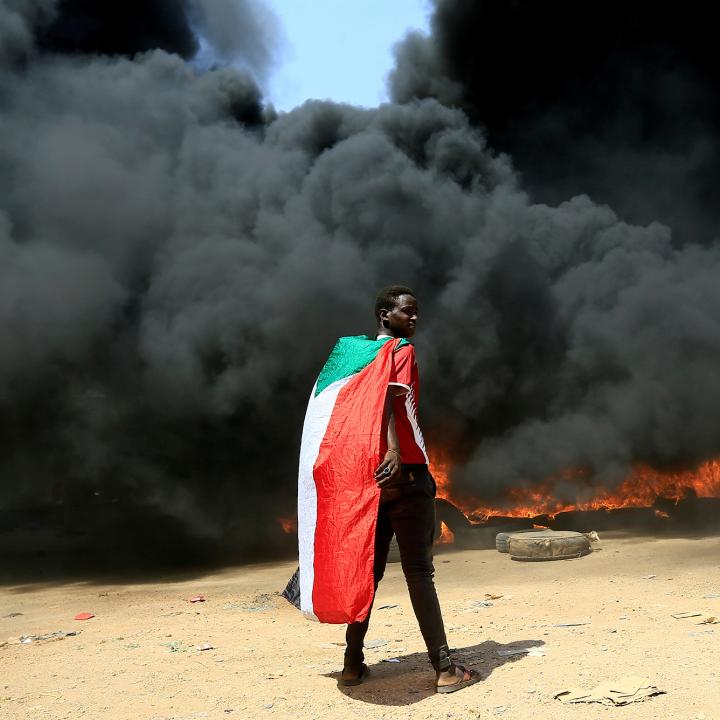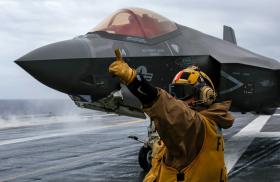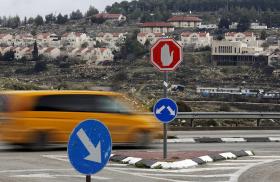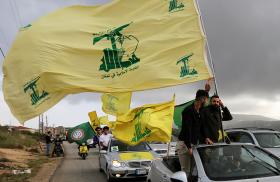
- Policy Analysis
- Policy Alert
Washington’s Difficult Mission to Unify Sudan Diplomacy Just Got Harder

Although the summit cancellation is a blow, it could serve as an important moment for reassessment and recalibration rather than signaling the end of international mediation.
After a series of delays, the scheduled summit of the Sudan “Quartet” has apparently been canceled, marking a serious setback to what had been promoted as a key diplomatic push for advancing peace in the country. Initially composed of the United States, Egypt, Saudi Arabia, and the United Arab Emirates, the Quartet initiative had gained momentum through the addition of Qatar and the United Kingdom, with senior U.S. presidential advisor Massad Boulos noting that “Sudan will be a priority in the coming phase.” The summit’s collapse has brought that momentum to a screeching halt. It also underscored speculation that certain disagreements may have been too deep to bridge—whether due to a lack of coordination within the Trump administration, conflicting regional agendas, or uncertainty about the event’s structure and participants.
As of this writing, no official statement has been released about the cancellation or what steps will be taken in its aftermath. Sources cited by Asharq al-Awsat indicate that diplomatic work on the Sudan file could resume as early as September. In the meantime, Washington and its partners have much to consider and do to prevent the process from derailing entirely.
The Immediate Challenge: Who Represents Sudan?
Since the summit was first announced, reports of tensions emerged between the Quartet parties. Cairo insisted on the participation of the Sudanese army and strongly opposed including civilian leaders and civil society elements, arguing that such actors have limited influence on the ground. Yet Washington pressed for civilian participation in the discussions and rejected giving a seat to the army, which it blames for the failure of previous transitional phases. The U.S. government also still has sanctions in place against the generals who lead each warring faction: Abdel Fattah al-Burhan of the Sudanese Armed Forces (SAF) and Mohamed Hamdan Dagalo (aka “Hemedti”) of the Rapid Support Forces (RSF).
Indeed, the U.S.-led process is not conceived as a direct negotiation between Burhan and Dagalo’s factions, but rather as an attempt to form a coordinated international platform that manages the balance of power in Sudan (applying pressure as needed) and establishes conditions conducive to a successful political process. As Boulos noted in early July, however, “Parallel communications are taking place behind the scenes—with SAF and RSF leaders as well as other Sudanese military and civilian figures—in an attempt to bridge the gap.”
Will the New Players Complicate the Scene or Create Opportunities?
The inclusion of Qatar and the UK as unofficial Quartet facilitators was an important shift. In addition to extending the breadth of international representation in the process, it also signaled an increased emphasis on the conflict’s regional complexities and domestic polarization.
The UK’s return to the Quartet track after a three-year absence has brought an experienced diplomatic player back to the table—one with deep knowledge of the Sudanese milieu and an ability to access channels that are difficult for other parties to reach. To be sure, London has been continuously engaged on Sudanese diplomatic and humanitarian issues, but its presence alongside the Quartet can further bolster that framework given the UK’s long history of relations with the Sudanese army, civil service sectors, and legal and academic elites. Moreover, the UK is considered a traditional incubator for Sudanese political and civil activity—influential figures from leftist, liberal, and reformist Islamic currents have resided there, as have the leaders of certain armed factions.
Qatar is likewise a second home for many Sudanese, including Islamist figures linked to the former regime and aligned with the SAF. This gives Doha the ability to activate certain backchannels that other mediators cannot. Its bid to join the Quartet is also driven by a longstanding interest in mediating Sudanese conflicts—particularly in the Darfur file, where Qatar sponsored arduous negotiations in 2011 that led to the signing of the “Doha Document for Peace in Darfur,” a major diplomatic step. Besides decreasing local violence in the years prior to the outbreak of the current war in 2023, the agreement introduced power-sharing efforts, a victims compensation fund, official Sudanese government recognition of Darfur, and the appointment of a vice president from that region.
Today, Qatar’s influential network of informal relations includes RSF elements, tribal leaders, senior Islamists, and high-ranking military officers, giving it diplomatic flexibility and the ability to negotiate from nontraditional angles. Moreover, its influential media platforms and generous funding of regional initiatives could lend it additional heft in Sudan.
Of course, Qatar also brings some baggage to the Quartet. Given its ties with Islamist groups—many of whom view Doha as a trusted actor—it could influence negotiations in unhelpful directions without careful management. At the same time, these controversial groups maintain real influence on the ground, including with forces linked to the SAF, making it difficult to simply sideline or pressure them. Qatar’s participation in the process could help create political balance by including some Islamist actors in a broader vision for peace. It could also provide a counterweight to the UAE, which tends to take a more cautious stance toward empowering Islamists while simultaneously being accused of supporting RSF elements that have committed war crimes. Working with both of these Gulf actors could help expand the base of the political process—one of the Quartet’s key weaknesses to date—though Washington would need to be clear-eyed when addressing concerns about their ties with problematic actors.
Another promising possibility is expanding the Quartet forum to include partners like the African Union, or perhaps a European country like Norway, which is very active in Sudan aid and has been widely suggested as a useful mediator. Despite concerns that this could complicate the task of reaching consensus, more mediators could also increase pressure on the warring parties to compromise. Although international actors may differ in their tactics or priorities, their shared interest in preventing escalation and state collapse outweighs those divisions. With the United States leading the coordination and strategic side of negotiations, these differences can be bridged before the chances for peace slip out of reach.
Areig Elhag is the Arabic content editor at The Washington Institute and former producer of the award-winning television program Between Two Niles, focusing on Sudan’s political landscape, human rights, and regional diplomacy.



